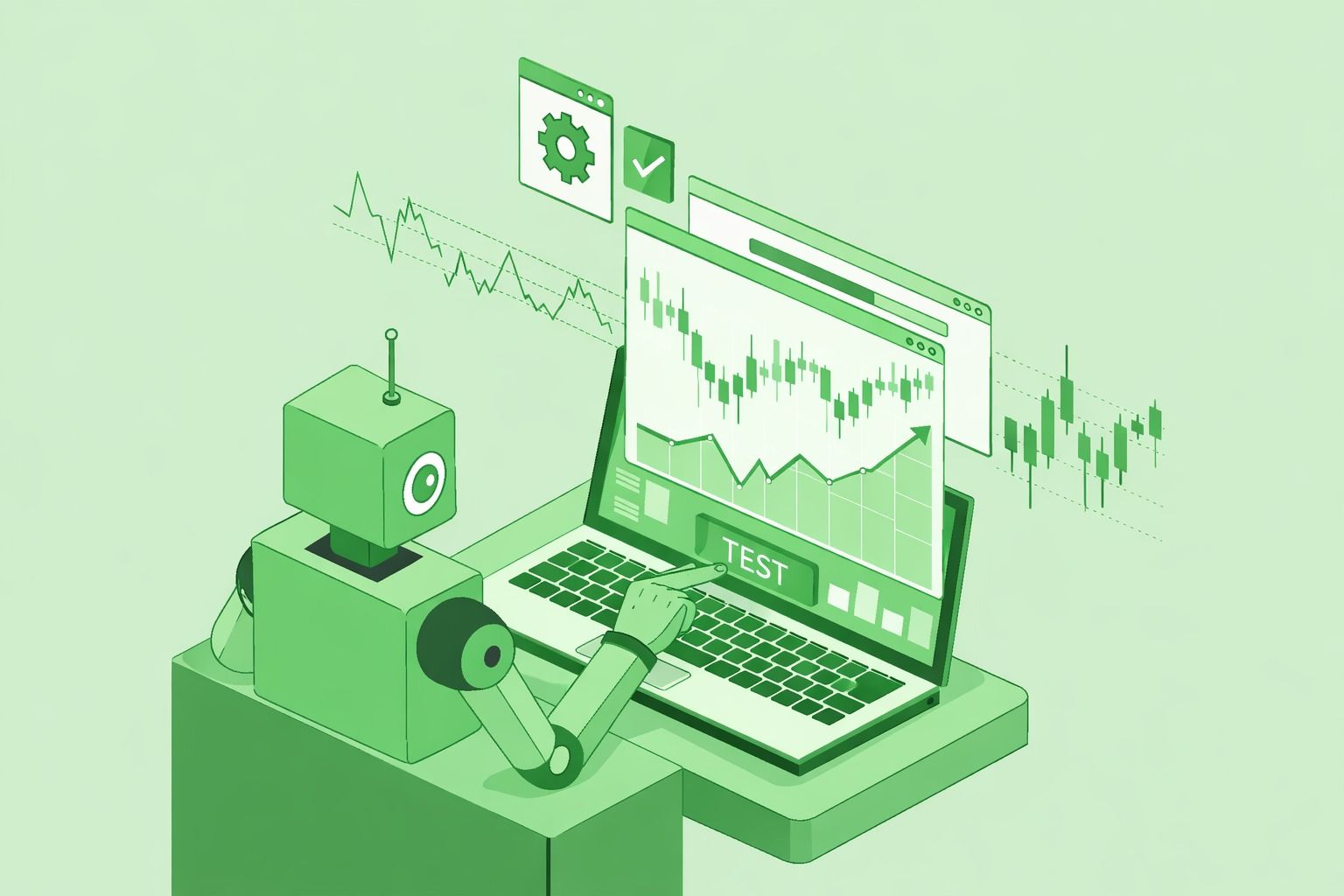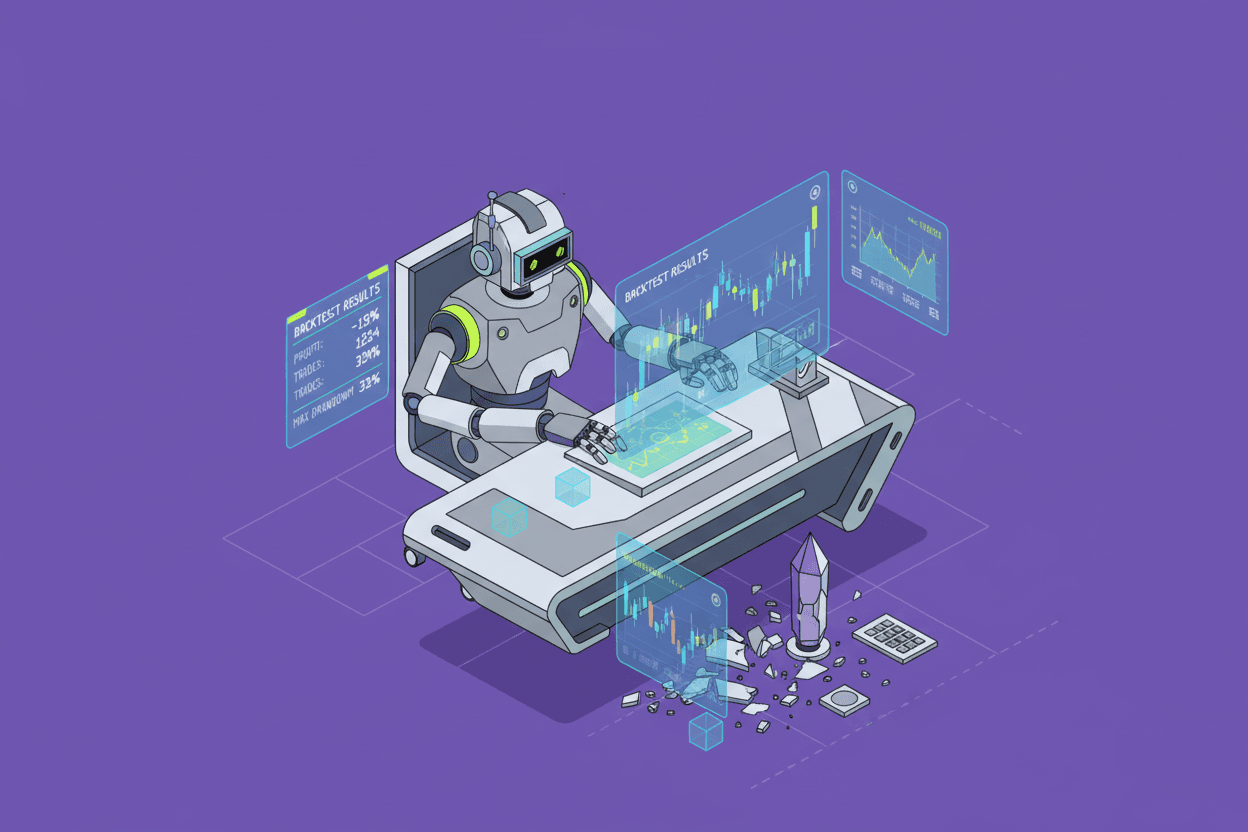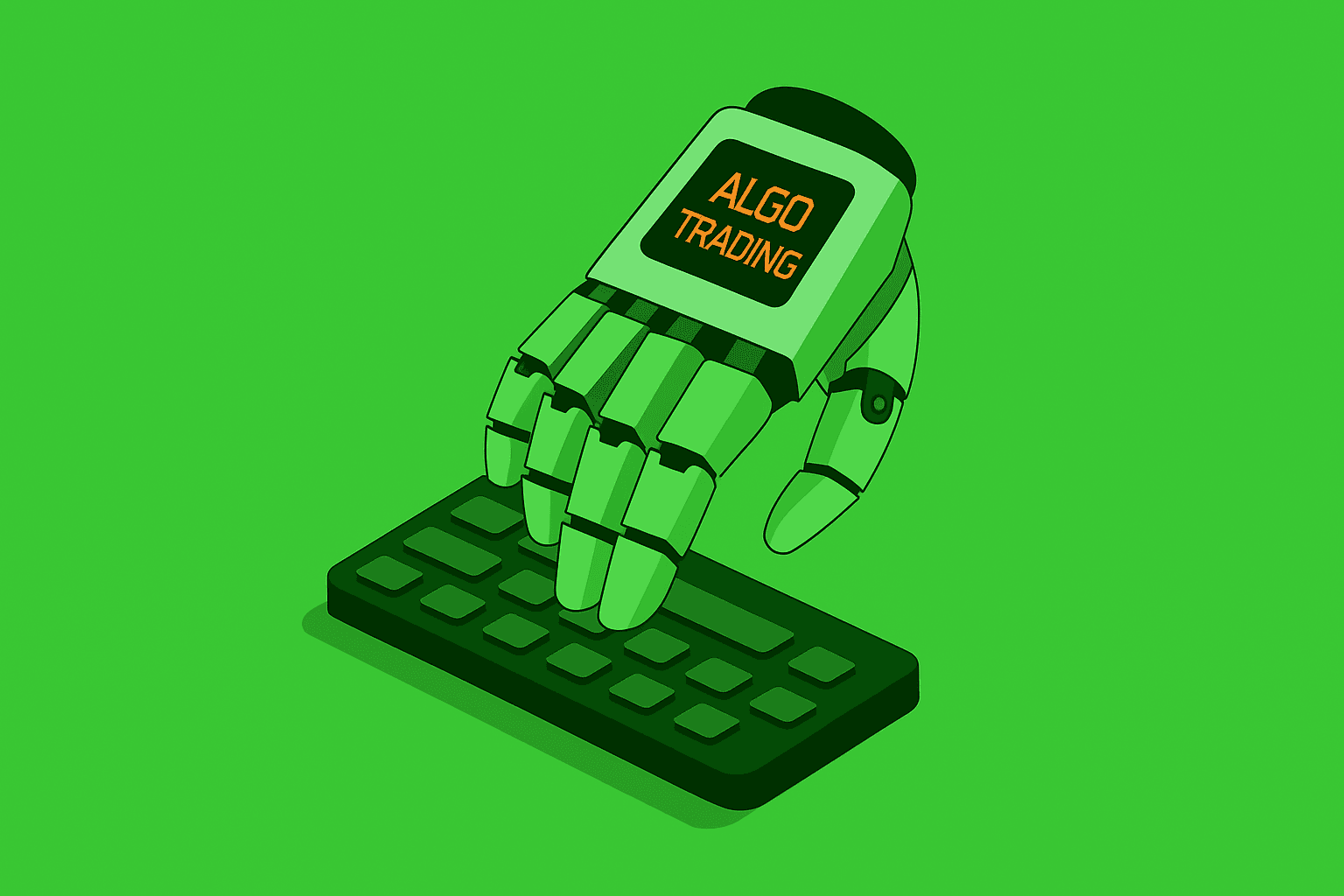
The Rise of Algo Trading Among Retail Investors in the Indian Stock Market
By
Arihant Team
From manual trades to machine precision, Indian retailers are embracing algo trading like never before. Automation and robot trading are transforming how everyday investors capture market opportunities.
In This Article
- Introduction
- Is algo trading legal in India?
- How popular is algo trading among Indian retail investors?
- Can you start algo trading without coding?
- What’s next for retail algo trading in India?
- Final thoughts
Introduction
In recent years, algorithmic trading, also known as algo trading or robot trading, has undergone a quiet revolution in the Indian stock market. Until a few years ago, algo trading was only accessible to large institutional investors and hedge funds. Fortunately, SEBI has now opened the doors of algo trading for even retail investors.
With the advancements in technology, automation, and access to APIs, Indian traders are now experiencing a new norm of speed, efficiency, and data-driven investing that’s without any human bias.
Let's take a look at how algo trading works, why is it becoming popular, and what traders should know before jumping into this world of algo trading.
What is algo trading and how does it work?
As the name suggests, algo trading uses pre-programmed computer algorithms to execute trades automatically. These algorithms are programmed to adhere to certain rules (based on price, timing, quantity, or any mathematical model); these rules allow buy and sell trades of securities to be executed automatically without human involvement.
To put it plainly, algo trading is robot trading that utilizes logic instead of emotions and automatically places trades on the basis of pre-defined rules with precision and speed. Instead of manually clicking buy or sell, an algo trading tool automatically transacts these trades instantly once market conditions are satisfied based on parameters that were pre-defined.
Why are retail traders turning to automation?
Just a few years ago, automation in trading was something only big institutions could afford. But today, the barriers to entry have drastically fallen. Retail investors are embracing algo trading because:
- Speed and Precision: Algorithms execute trades in milliseconds — faster than any human can possibly do.
- Emotion-Free Decisions: One of the biggest hindrances for a trader is emotional bias. Automation eliminates any kind of emotion or bias from trading, helping you make smarter trades based on logic.
- Backtesting Strategies: Traders can do a test run before deploying their strategies to be sure it works. Through back testing they test their ideas on historical data before deploying them live.
- 24/7 Market Tracking: Algorithms can scan multiple stocks and indicators simultaneously — something impossible manually.
- Access to APIs: Platforms like ArihantPlus now allow API-based trading, where traders can now directly connect their algorithms to a broker’s platform allowing them to automate their stratgies with ease.
In short, automation is democratizing trading, giving retail investors access to tools that were once limited to professional desks.
Is algo trading legal in India?
One of the most common questions Indian traders ask on Google is:
“Is algo trading legal in India?”
Yes, algorithmic trading is completely legal in India. Algo trading was first introduced in India in 2008, when the Securities and Exchange Board of India (SEBI) allowed direct market access (DMA) to institutional traders. Fast forward 2025, SEBI recently introduced new algo trading rules for retail traders giving them access to the world of algo trading with enhanced security, ensuring fair access and transparency.
As per the new rules, brokers offering algo trading must get their platforms approved by the exchange. Unauthorized or unapproved “plug-and-play” algo tools are banned and only exchange empanelled algo providers can be onboarded to offer their services to retail traders. And traders should always use SEBI-registered brokers and APIs for automation to stay on the right side of the law and keep risk at bay.
How popular is algo trading among Indian retail investors?
According to SEBI and exchange data, nearly 60% of total market volumes now come from algorithmic or automated trading. Earlier, this was dominated by institutions. But now, retail participation in algo trading is also gaining traction and has surged >30% in the last two years alone.
Various algo platforms like Quantman, Tradetron, insta option , Greek soft, fox trader have made it incredibly easy for beginners to automate strategies — even without knowing how to code. At ArihantPlus, you can get access to various algo-trading platforms with complete support.
What’s driving this retail boom?
- Increased tech awareness among millennials and Gen Z traders.
- Access to plug-and-play strategies on algo platforms.
- API integration by brokers.
- A strong push from YouTube educators and algo communities.
What are the advantages of algorithmic trading?
Let’s face it — the human brain is powerful, but not always rational. Markets move fast, and emotions like fear or greed can ruin even the best trading plans.
Here’s where algorithmic trading shines:
- Speed & consistency: Executes multiple trades faster than any manual trader.
- No emotions: Removes impulsive trades caused by panic or excitement.
- Better risk management: Algorithms can apply stop-loss, profit booking, and trailing conditions automatically.
- Scalability: You can run multiple strategies simultaneously across stocks, options, and indices.
- Backtesting & optimization: Allows refining of strategies based on data, not guesswork.
In short, robot trading gives structure to your strategy — making your approach more scientific and disciplined.
Can you start algo trading without coding?
Absolutely! One of the biggest myths about algo trading is that you must be a coder or data scientist to start. But it cannot be farther from the truth. With the advancement in tech, several no-code algo platforms in India — like Tradetron allow users to create strategies through simple drag-and-drop logic builders.
Using these tools, you can define rules like:
- “Buy when RSI crosses 30”
- “Sell when price breaks 200 EMA”
and the system handles the rest!
So, even beginners can step into automation without any programming background.
What are the risks in robot trading?
While algo trading offers great advantages, it’s not risk-free. Some challenges include:
- Technical Failures: Internet drops or server lags can cause missed trades.
- Over-Optimization: Backtesting can make strategies look perfect on paper but fail in live markets. Besides, markets are volatile and unpredictable. What worked in the past may not always hold true in the future.
- Regulatory Risks: Using unapproved third-party software can lead to compliance issues.
- Market Volatility: Even the best algorithms can’t predict black swan events or flash crashes.
Hence, it’s vital to start small, test extensively, and monitor automation closely.
What’s next for retail algo trading in India?
The next few years could be a turning point. With AI, machine learning, and cloud-based automation, algo trading will become smarter and more accessible.
With increased awareness, more traders will rely on robot trading to gain an edge — using automated systems to execute trades faster, smarter, and with minimal human intervention.
Brokers are already innovating with market-ready APIs, pre-built strategies, and educational resources to help users get started safely.
Final thoughts
The rise of algo trading in India reflects a larger trend — the automation of investing. As retail investors adopt data-driven, emotion-free trading systems, the line between professional and retail trading continues to blur.
Whether you’re a casual investor or an aspiring full-time trader, learning how algorithmic trading works can help you make more disciplined, efficient, and profitable decisions in today’s fast-moving markets.
Related Topics






